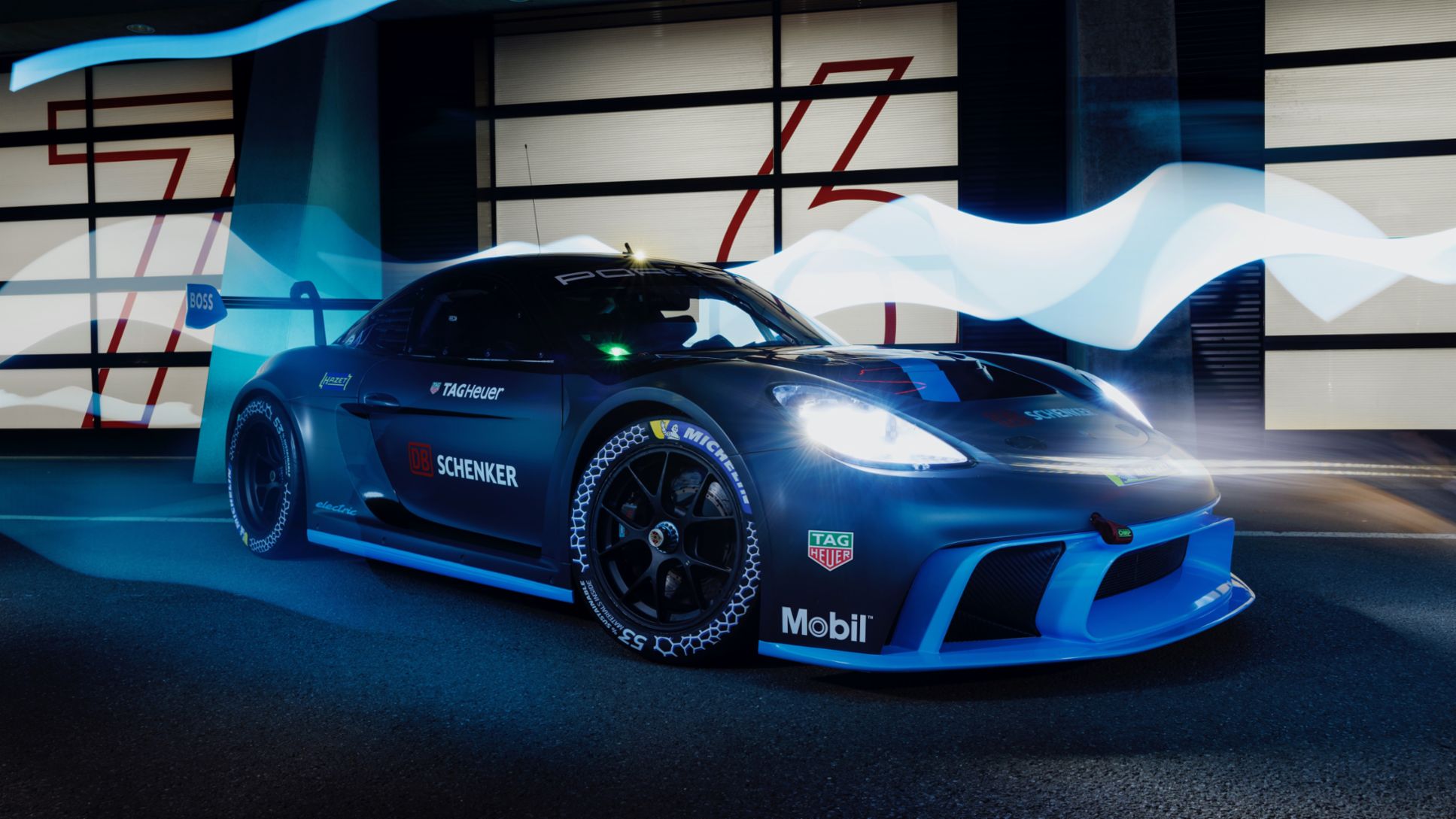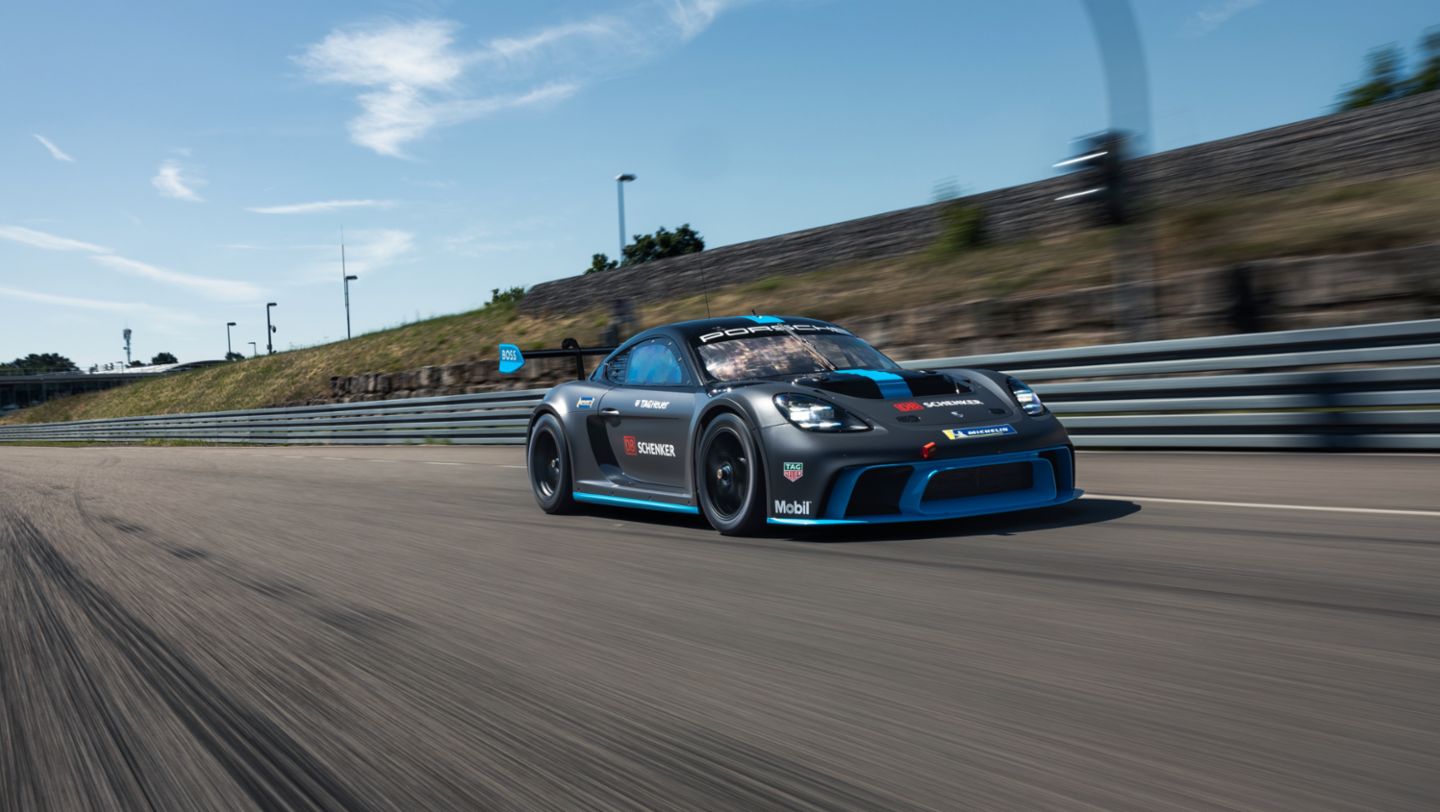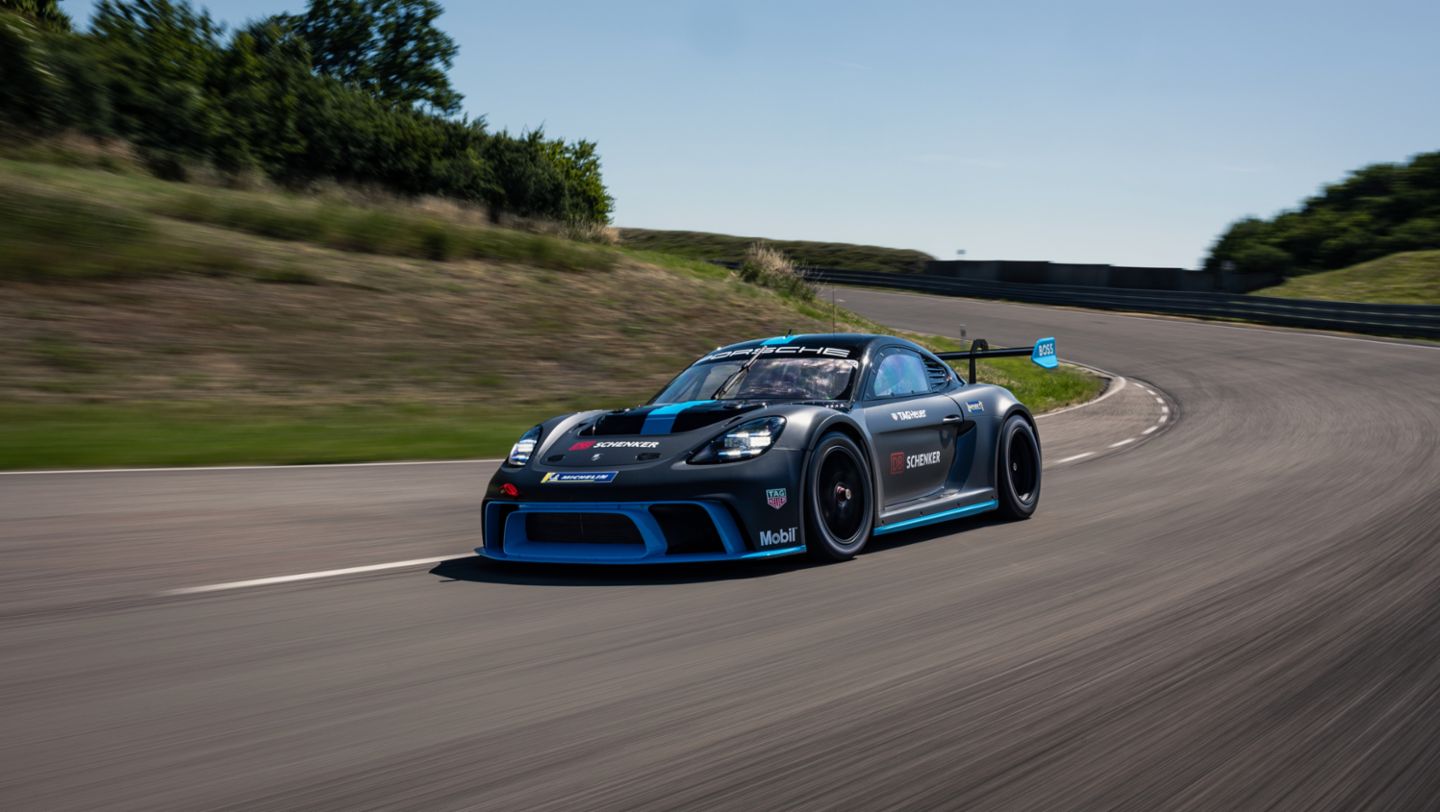Sprint races on a circuit, hill climbs on mountain roads, drift races in the snow: the Porsche GT4 e-Performance prototype is built to be used in different events. After all, a future electric Porsche customer racing car should be used as much as possible. The prototype will never be for sale, but it is already gathering valuable data and insights.
What's more, digital technology allows completely new race formats, including interaction with the vehicle. For example, power output can be flexibly adjusted during the race. The race car will continue to enable close links between physical and virtual racing.
With the Mission R, we’ve shown how Porsche envisages sustainable customer motor racing in the future. The 718 Cayman GT4 e-Performance is now demonstrating that this vision works impressively on the racetrack. Matthias Scholz, GT Racing Vehicle Project Manager
Porsche will be holding intensive discussions with customers, partners, and decision-makers from the racing scene about possible applications of this new drive concept and innovative racing formats. That's why the prototype will go on the Porsche GT4 e-Performance Tour and appear at selected events worldwide, starting with the Festival of Speed in Goodwood in 2022. The topic of sustainable racing will certainly be on the agenda.
Technical Specs
| Engines | a permanently excited synchronous machine (PESM) on the front and rear axles |
| Performance | up to 800 kW (1,088 HP) |
| Battery capacity | 65/80 kWh (net/gross) |
| Charging time | about 15 minutes from 5 to 80 per cent SoC (state of charge) |
| Unladen vehicle weight | < 1.550 kg |
The GT4 e-Performance at a glance
Origin
A test vehicle for the all-electric future of customer racing: this all-wheel-drive racer is built around the chassis of the well-known 718 Cayman GT4 Clubsport model. The electric motor and battery technology is from the IAA concept study Mission R, and is undergoing extensive practical tests at national and international events.
Performance
All-wheel drive meets electric peak performance: in qualification mode, the electric drivetrain produces a maximum output of more than 735 kW (1,000 HP). In simulated racing, a steady 450 kW (612 PS) is available for up to 30 minutes, which is enough for a sprint race in the Porsche one-make cups. Thanks to 900-volt technology, the state of charge (SoC) of the battery while being charged goes from 5 percent to 80 percent in about 15 minutes.
Technology
Born to win: the direct oil cooling system built into the e-motors and battery pack, developed by Porsche, counteracts thermally induced derating of the electric drive system. This means that the power output in racing mode remains constant for half an hour. Intelligent technology also generates electrical energy in racing mode and feeds it to the battery (recuperation), for example during braking.
Design
Form follows function: with experts in the fields of aerodynamics and thermodynamics as well as high-voltage and bodywork specialists, the development team created an architecture to tap the full potential of the battery cells. The racing car is 14 centimetres wider than a 718 Cayman GT4 Clubsport. About 6,000 parts were designed from scratch.
Sustainability
A test vehicle for more sustainable racing: the body includes natural fibre composite materials, with production intended to generate lower emissions than the production of comparable synthetic materials. The flared wheel arches allow more room for the wider 18-inch Michelin racing tyres . Renewable materials make up a particularly high proportion of the tyres.





